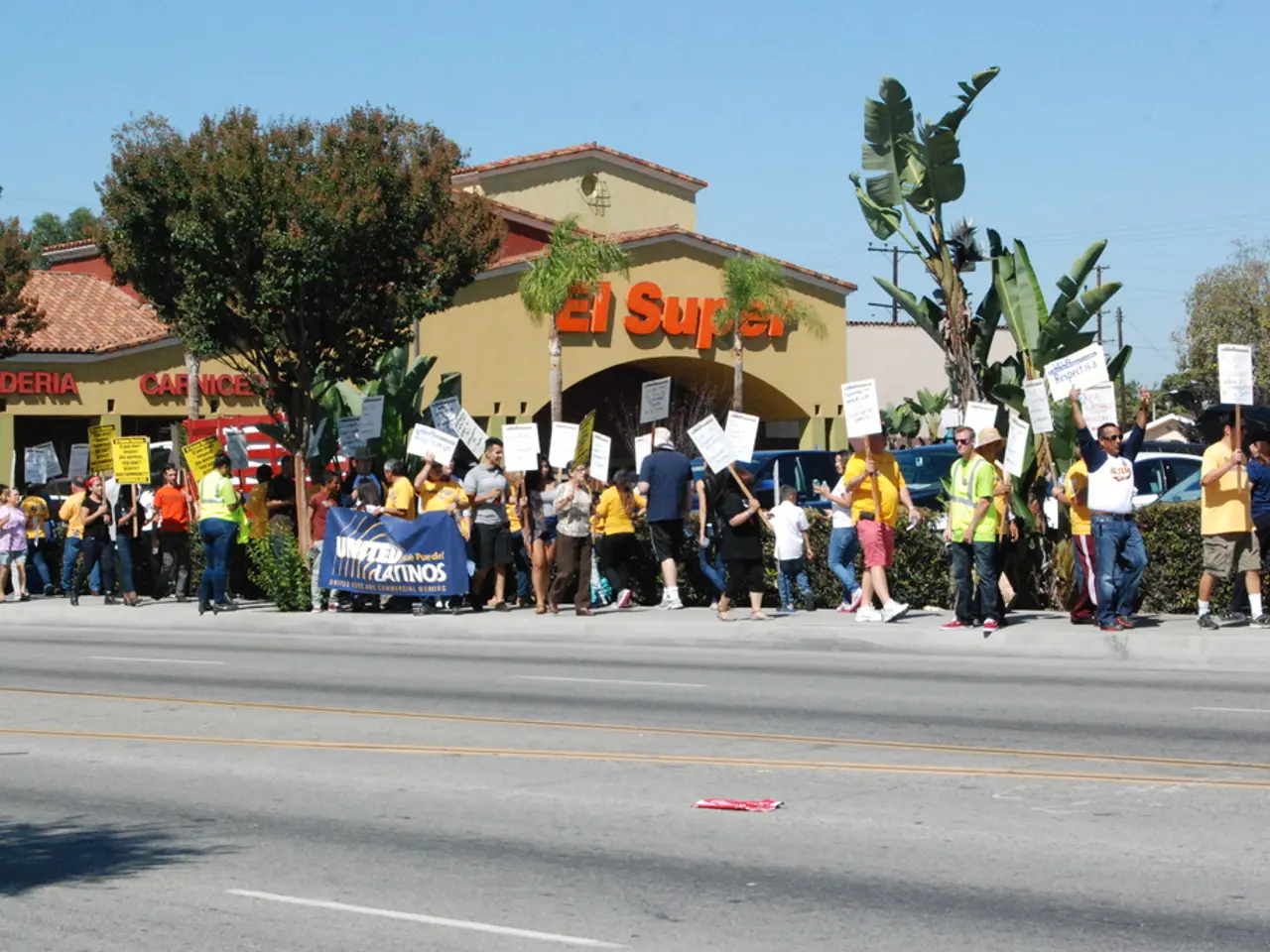Iowa Democratic party confronts substantial challenges in aiming to regain prominence before the 2028 primary elections
Iowa's Future as a First-in-the-Nation State Uncertain
The future of Iowa's Democratic caucuses for the 2028 primary calendar is under review, with the Iowa Democratic Party (IDP) conducting a survey of past and potential caucusgoers to gauge their preferences on maintaining Iowa's traditional first-in-the-nation caucus position.
Historically, Iowa's caucuses have boosted the campaigns of former presidents Jimmy Carter, Barack Obama, and former Transportation Secretary Pete Buttigieg. However, the Democratic National Committee (DNC) overhauled the early nominating state window in 2022, making South Carolina the first primary state, and Iowa's position as the first contest is now contested and unresolved.
Other states, such as Nevada, New Hampshire, and Michigan, are vying to be the first contest for the 2028 calendar. Because the DNC has not yet finalized the 2028 primary calendar, Iowa's traditional strategic value for presidential campaigns is diminished. Candidates are now focusing on alternative early states, adjusting their resource allocation and outreach plans to compete in states likely to hold early primaries and caucuses.
The IDP survey aims to gauge voter preferences on Iowa's role and the format of the caucuses, recognizing the debates over inclusivity and resource allocation that have surrounded the caucuses in recent years. The results of the survey are due in December 2025.
Iowa Democrats face trade-offs in balancing historical prominence, inclusivity, and resource use in shaping their 2028 nominating process approach. Critics argue that the early states should reflect the diversity of the nation and overlap with swing states Democrats need to win the general election.
The state party has switched from a caucus system to a vote-by-mail primary, and Iowa has lost its voice on the DNC's rules and bylaws committee, while Nevada, New Hampshire, South Carolina, and Michigan have gained a seat each.
Some candidates, such as Pete Buttigieg, Ruben Gallego, and Rahm Emanuel, are still visiting Iowa, despite the uncertainty surrounding its position in the primary process. D'Alessandro, a longtime Iowa Democratic strategist, suggests setting a date for the primary or caucuses and ignoring potential consequences from the DNC, including a loss of delegates.
The final makeup of the 2028 primary calendar will influence presidential campaign strategies and candidate traction. Iowa Democratic Party Chair, Laura Hart, is focusing on winning elections in 2026, including the governor's seat, a US Senate seat, and four congressional seats.
The DNC has insisted that the process to apply to be an early state will be open, with a commitment to running a fair, transparent, and rigorous process for the 2028 primary calendar. Abhi Rahman, the DNC's deputy communications director, has emphasized this point, stating that the process will be open to all states.
Despite the uncertainty, some candidates may still show up for Iowa events, even if the state is not an early-state in the primary process, due to the attention generated by the Republican caucuses. Overall, the outcome of the IDP survey and the DNC's decision on the 2028 primary calendar will significantly impact presidential campaign strategies and candidate traction.
Read also:
- Weekly happenings in the German Federal Parliament (Bundestag)
- Southwest region's most popular posts, accompanied by an inquiry:
- Discussion between Putin and Trump in Alaska could potentially overshadow Ukraine's concerns
- Tinubu's administration allegedly causing issues within every political party as Peter Obi's name surfaces - Obidient Movement asserts








